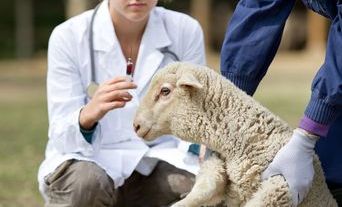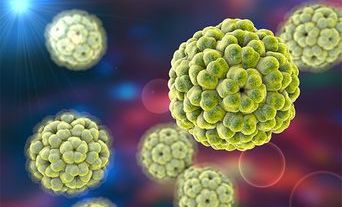The need for standardised perioperative care
The care of patients who suffer suspected perioperative hypersensitivity reactions in the UK is currently not standardised, with variable provision of services dependent on geographical location. The Royal College of Anaesthetists’ 6th National Audit Project (NAP6)1 shone a light on this and other problems. The NAP6 report followed a one-year audit of all cases of perioperative anaphylaxis in UK NHS hospitals and included 134 recommendations to improve care in this area. The report demonstrated that the referral and subsequent investigation of patients was frequently not in line with current UK guidelines, occasionally leaving patients at risk of further severe or fatal reactions.1
The right mix of personnel
Anaesthetic allergy clinics vary in terms of the personnel present, with some run primarily by anaesthetists with little allergy specialist input and some run with purely allergy specialist input. Many clinics saw fewer than 20 patients per year, which was deemed insufficient for dealing with these highly specialised cases. Unfortunately, many of these clinics were not included in the NAP6 study; therefore, the picture of the provision of services across the UK is incomplete.
There is a notable lack of accountability on the part of anaesthetists or allergy specialists for the care which they provide. The professional bodies for anaesthetists lack accreditation standards around the referral and subsequent investigation of patients.2 Furthermore, there is no robust process for the dissemination of clinic information to relevant healthcare providers.
Access to data
The lack of nationally held data means that clinicians in different geographical areas may not have sight of the investigations a patient has previously undergone, or the diagnosis made. If a patient receiving a diagnosis of allergy presents for emergency surgery elsewhere in the UK, that information will typically not be available to the anaesthetist. This presents a clear and significant patient risk.
Forming networks and sharing data
A further problem is the limited collaboration between, and within, stakeholder specialties responsible for provision of care in this patient group. There are currently no formalised networks for sharing experience, providing education, and advancing knowledge through audit and research. Anaesthetic allergy is an under-researched field, often reliant on anecdotal evidence rather than robust, funded studies.
As with all rare events, it is vital that cases are collected from the whole of the UK to carry out meaningful audits and research. A recent example of this problem is the emergence of teicoplanin as an important perioperative allergen. This was first detected through informal discussions among clinicians with an interest in anaesthetic allergy. However, the true scale of the problem was not identified until the NAP6 study was reported some five years later.1,3 In addition, the lack of detailed, centrally collected patient data limits our understanding of the underlying mechanism and our ability to recruit patients into studies. A national database, in addition to the patient safety benefits outlined later, would provide an invaluable tool for audit and research in this field.
A formalised network of anaesthetists, allergists and immunologists involved in the care of perioperative hypersensitivity is also essential to improving patient care. Immunologists along with allergists provide the main post-event investigations in specialist clinics. In these clinics, skin and blood tests are carried out with the aim of confirming the cause of the suspected anaphylaxis and identify safer alternatives where an allergy is confirmed. This enables the patient to have safer anaesthesia in the future.
Such a network would facilitate the use of a national database of cases and would promote the development of a much-needed educational framework for clinicians in this field. There are currently no formal training requirements for anaesthetists working within anaesthetic allergy,4 and limited requirements for allergists and immunologists. This ad-hoc experiential learning represents a patient safety risk and is an outdated approach that is no longer appropriate. In this respect, anaesthetic allergy, as a subspecialty, is a notable outlier when compared with all others.
To tackle these long-standing issues, Dr Louise Savic, a consultant anaesthetist, set up the Anaesthetic Allergy Working Party (AAWP) with equal representation from anaesthetists, allergists and immunologists. This working party has been endorsed by the relevant stakeholder professional bodies, such as the British Society for Allergy and Clinical Immunology (BSACI) and RCPath.
Forming the Anaesthetic Allergy Working Group
The main aim of the AAWP is to improve care in anaesthetic-related (or perioperative-related) allergy events following the publication of the NAP6 report.1 The AAWP will focus on the following areas:
- defining current best practice including (butnot limited to):
– acute management of the suspectedallergic event
– referral processes for further investigation
– minimum standards for investigation atallergy clinic
– if required, development of new nationalguidelines - review of current accreditation stand-ards within anaesthesia, allergy and clinicalimmunology
- review training required for anaesthetists,allergists and clinical immunologists involvedin the investigation of suspected anaestheticallergy
- develop a national clinical network of clinicians with an interest in anaesthetic allergy (ideally representing all acute NHS trusts)
- design a pilot database before expanding to a national database
- identify the key areas for education provision
- identify the key areas for future research within anaesthetic allergy
- explore the need for a limited number of highly specialised testing centres where high-risk challenge testing (e.g for NMBA) can be offered.
The BSACI AAWP is engaging with relevant stakeholders, including the RCPath, the Royal College of Physicians, the Royal College of Anaesthetists and the Association of Anaesthetists of Great Britain and Ireland, to ensure success of the working party, and looks forward to working with RCPath going forward.
References available.



